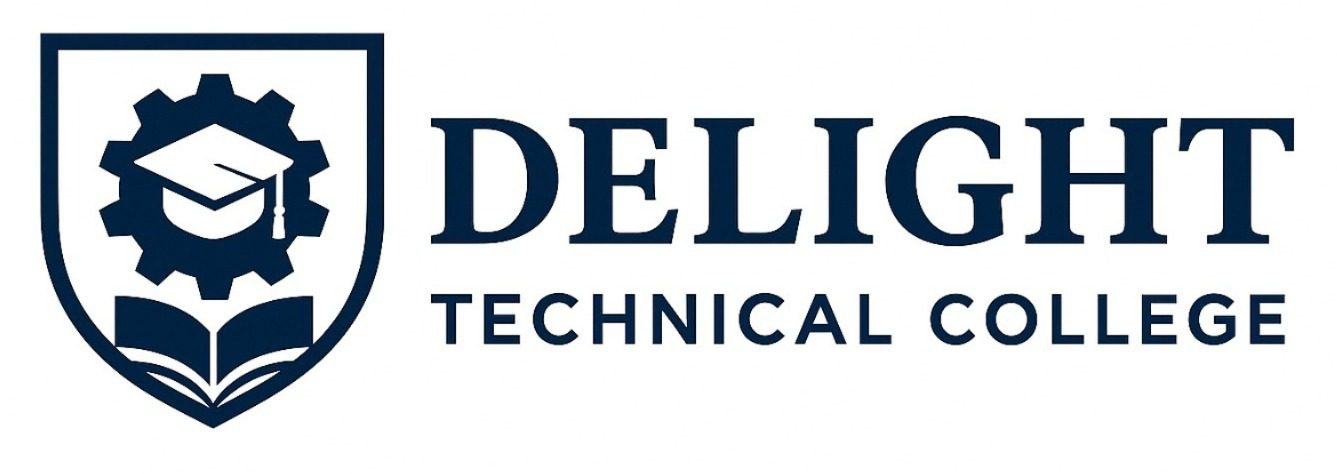
East African Regional Integration Through Delight College
Delight Technical College plays a pivotal role in advancing East African regional integration by fostering collaboration, skills development, and a shared vision among the youth from across the East African Community (EAC). As the region becomes increasingly interconnected through trade, technology, and mobility, the college stands out as a key institution that promotes unity and progress by offering accessible and high-quality technical and vocational education and training (TVET) to students from Kenya, Uganda, Tanzania, Rwanda, Burundi, South Sudan, and beyond.
- Creating a Shared Learning Environment
Delight College brings together students from diverse East African countries, enabling them to engage in a collaborative learning environment. Students not only acquire technical and vocational skills but also gain insights into each other’s cultures, traditions, and ways of life. This cultural exchange helps build mutual understanding, respect, and a sense of regional unity.
- Cross-Border Education: Students from various East African countries are encouraged to pursue courses in fashion design, digital media, hospitality, construction, and other fields, contributing to a multinational student body.
- Collaborative Projects: Delight fosters collaboration among students from different EAC nations through group projects, joint internships, and real-world assignments, helping them appreciate the value of regional cooperation and interdependence.
- Bridging the Skills Gap Across the Region
One of the key benefits of regional integration in East Africa is the ability to address common challenges, such as the skills gap in technical and vocational sectors. Delight College’s role in this integration process lies in its efforts to equip students with the skills and knowledge that are crucial for the region’s economic growth.
- Standardized Curriculum: Delight offers a curriculum that is aligned with the needs of the East African labor market, ensuring that students from different countries receive industry-relevant training.
- Entrepreneurial Focus: Many East African countries, including Kenya and Uganda, have a high number of youth with entrepreneurial aspirations. Delight supports this by offering entrepreneurship training, helping students become job creators and contributing to regional economic development.
- Workforce Mobility: The East African Community has seen an increase in cross-border labor mobility. Delight’s curriculum prepares students to work seamlessly across East Africa, ensuring that they meet regional standards and are ready for employment or entrepreneurship anywhere in the region.
- Advancing Trade and Economic Cooperation
Education is one of the strongest tools for regional economic integration, and Delight College contributes to this by providing training that supports industries that are integral to regional trade and economic cooperation.
- Cross-Border Trade Skills: Delight offers training in sectors like logistics, business management, ICT, and agriculture, sectors that are essential for regional trade. Students gain practical skills in supply chain management, digital marketing, and e-commerce, enabling them to engage with the regional market.
- Supporting Key Sectors: With East Africa’s focus on economic integration through initiatives like the African Continental Free Trade Area (AfCFTA), Delight College trains students in fields such as fashion, media, technology, and construction, helping to enhance sectors that contribute to cross-border trade.
- Alumni Network: Delight’s network of alumni from across East Africa also plays an important role in regional economic development by collaborating on projects and establishing businesses that connect different East African countries.
- Promoting Cultural Diversity and Inclusivity
East African integration is not only about economic cooperation but also about celebrating the region’s diverse cultures and identities. Delight College embraces this diversity by providing an inclusive educational experience for all students, regardless of their nationality.
- Cultural Exchange Programs: Delight offers students the opportunity to participate in cultural exchange programs, where they can learn more about the histories, languages, and traditions of their regional peers.
- Support for International Students: With a large number of students from Uganda, Tanzania, Rwanda, South Sudan, and Burundi, Delight provides personalized support to help students adapt to life in Kenya and become fully integrated into campus life.
- Language Support: As East Africa has multiple languages spoken across its countries, Delight offers language support to students, helping them improve their English and Swahili proficiency, thus facilitating smoother communication and better regional collaboration.
- Regional Collaboration through Partnerships
Delight College fosters regional integration by building partnerships with institutions and organizations across the East African region. These partnerships enable the college to contribute to the development of East Africa’s educational and vocational training landscape.
- Collaborations with Government and NGOs: Delight works closely with governments and regional organizations to offer scholarships and training opportunities that enable students from across East Africa to study and enhance their skills.
- Regional Networks for Employment and Internships: Through partnerships with private and public sectors, Delight connects students to internship opportunities and employment networks in various East African countries, thus supporting regional workforce mobility and integration.
- Digital Training for a Digital Future
In an increasingly digital world, ICT training and digital literacy are essential for students across East Africa. Delight College plays a key role in digital transformation by offering cutting-edge training in fields like digital media, web development, coding, and e-commerce.
- Equipping Students for a Digital Economy: By training students in digital skills, Delight helps prepare them for the future of work, where digital technologies are central to every industry.
- Support for Innovation and Startups: The college also nurtures entrepreneurial innovation through its digital hubs and incubators, encouraging students to explore technology-driven solutions for regional problems.
- Supporting Youth Empowerment and Sustainable Development
Delight College contributes to East Africa’s broader goals of youth empowerment and sustainable development by offering courses and programs designed to foster social impact and economic prosperity across the region.
- Social Responsibility Projects: Delight encourages students to participate in community development projects, where they apply their technical and vocational skills to solve local challenges in areas such as health, education, and infrastructure.
- Environmental Sustainability: The college integrates sustainability education into its curriculum, helping students understand the importance of sustainable development practices that align with the UN Sustainable Development Goals.
Conclusion: Delight as a Beacon for East African Regional Integration
Delight Technical College is more than just an educational institution—it is a catalyst for East African regional integration. By providing high-quality vocational training, fostering cross-cultural understanding, and offering real-world skills, Delight College is helping to shape the future of East Africa’s youth, ensuring they are ready to contribute to the region’s economic, cultural, and social growth. As the region becomes more interconnected, Delight stands at the forefront, empowering students to become leaders in an integrated and prosperous East Africa.
Tag:African Continental Free Trade Area Skills, Cross-Border Education Africa, Delight Technical College Nairobi, East Africa Digital Skills, East African Community education, Fashion Design Uganda Tanzania Rwanda, Multinational Student Programs Kenya, Pan-African Education Initiatives, Regional Trade Education, Sustainable Development Training, Technical Training in East Africa, TVET Regional Integration, Youth Empowerment Kenya



